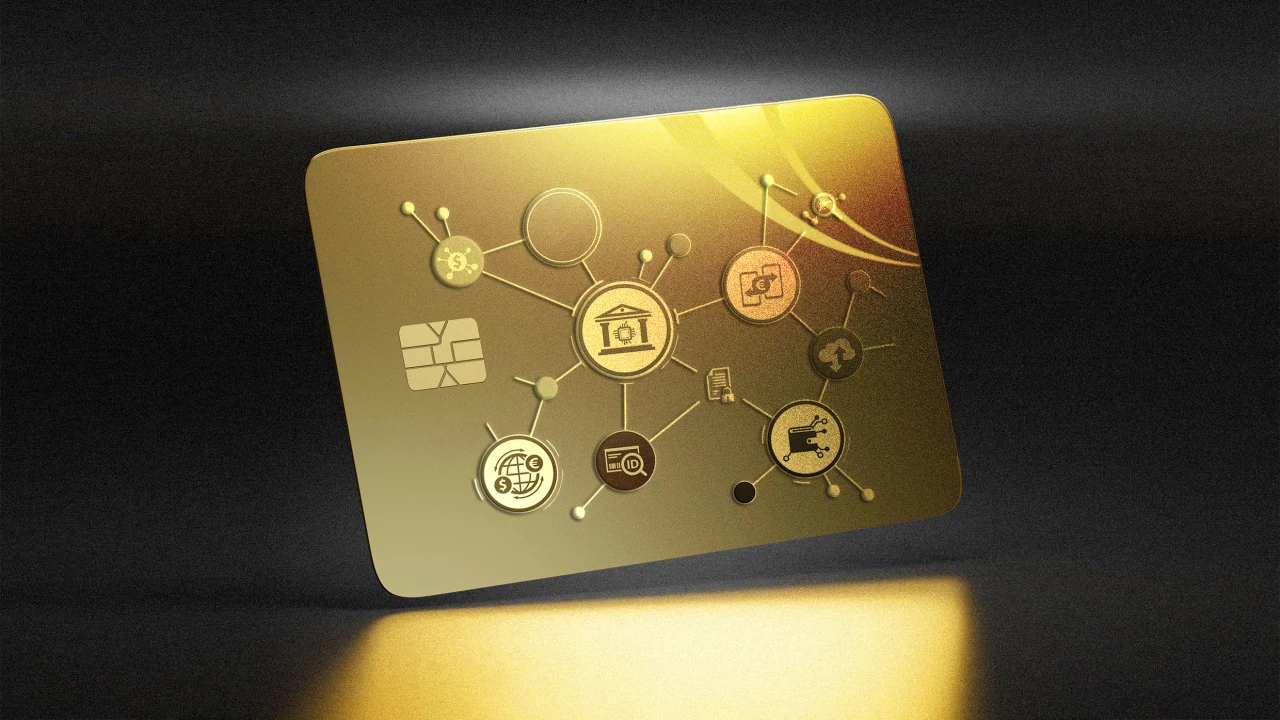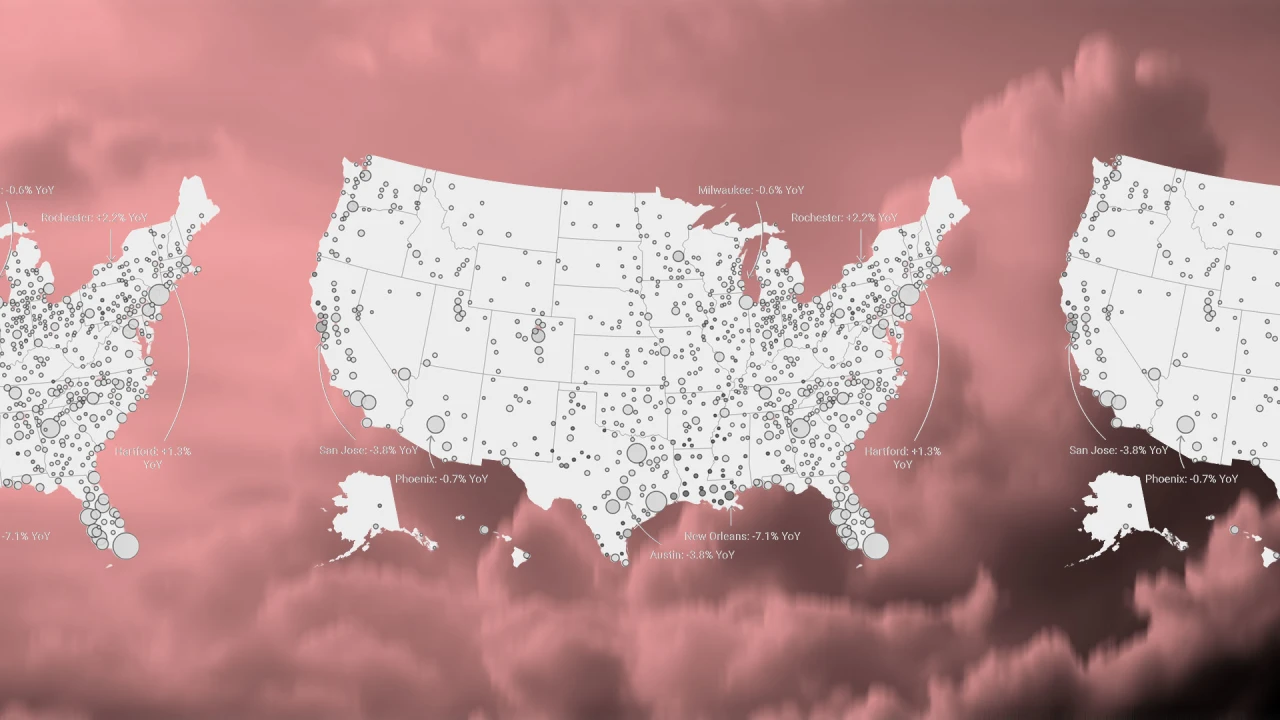Slash uses AI to build custom banking tools for niche industries
A fintech company called Slash offers business banking accounts tailored to the needs of specific kinds of entrepreneurs. Slash provides business checking accounts with funds held at FDIC-insured banks, detailed spending analytics dashboards, free or low-cost wire and ACH transfers, easy access to lending options, and unlimited virtual cards. These cards can be configured with specific spending limits, merchants, and merchant categories to prevent unauthorized or erroneous employee purchases. That control, along with metadata from Slash’s integrations with popular accounting platforms, makes it easier for bookkeepers to classify transactions. The company also offers a range of add-ons built for particular industries—something like an app store for banking—designed to address the unique pain points of different types of businesses. “The insight behind Slash is the work that an accountant [does] at a construction company, or a marketing agency, or a property manager looks very, very different from one another,” says CEO Victor Cardenas. Marketing agencies, for example, often take money from clients to spend on platforms like Google and Facebook. Traditionally, they would use a single business checking account and rely on internal systems to track how much was received, how much had been spent, and when to request more funds. With Slash, agencies can create virtual accounts for each client, allowing both parties to see the remaining balance. They can even trigger automatic billing for more marketing funds—plus the agency fee—when the balance runs low. The approach is popular: Slash reports that more than 1% of global ad spending on Facebook is conducted using a Slash card. “We basically make it much easier for agencies to put their accounts receivable on autopilot,” Cardenas says. Other industries have their own challenges. Contractors in fields like plumbing or HVAC often give technicians credit cards for fueling up, but want to prevent personal purchases—even inside gas stations. Slash enables businesses to restrict cards to fuel purchases only and ties each transaction to a specific driver or vehicle. “We can make it so an owner can basically say, I want this card to only be able to be used to buy gas at the pump and not inside of the station,” Cardenas says. “And then we get data at the time of clearing of the transaction around the actual fuel grade, what the kind of fuel was, and we’re able to pass that on and show that to our customers.” Other users include online travel agents, who generate virtual cards to pay hotels and vendors. For businesses dealing with cryptocurrency, Slash enables sending and receiving stablecoin payments—without needing a separate crypto platform. Slash also offers an API that lets customers build custom dashboards, trigger payments through internal systems, or, in the case of e-commerce marketplaces, automatically transfer funds to vendors when goods are sold. Cardenas says the rise of AI-powered coding tools has allowed Slash to rapidly release features tailored to different industries. The company started in 2021 with a focus on sole proprietors, but pivoted in late 2023 to serve larger businesses in specific verticals. On Tuesday, it announced a $41 million Series B funding round, valuing the company at $370 million. Thanks to AI, Slash can now ship features at a pace that would have been difficult just a few years ago, while leveraging its existing banking infrastructure and relationships. “It’s becoming trivial to build software, but it’s not trivial to stand up a card issuing and banking program,” Cardenas says. “And so while we’re ahead, we want to build solutions for as many industries as quickly as possible.”

A fintech company called Slash offers business banking accounts tailored to the needs of specific kinds of entrepreneurs.
Slash provides business checking accounts with funds held at FDIC-insured banks, detailed spending analytics dashboards, free or low-cost wire and ACH transfers, easy access to lending options, and unlimited virtual cards. These cards can be configured with specific spending limits, merchants, and merchant categories to prevent unauthorized or erroneous employee purchases. That control, along with metadata from Slash’s integrations with popular accounting platforms, makes it easier for bookkeepers to classify transactions.
The company also offers a range of add-ons built for particular industries—something like an app store for banking—designed to address the unique pain points of different types of businesses.
“The insight behind Slash is the work that an accountant [does] at a construction company, or a marketing agency, or a property manager looks very, very different from one another,” says CEO Victor Cardenas.
Marketing agencies, for example, often take money from clients to spend on platforms like Google and Facebook. Traditionally, they would use a single business checking account and rely on internal systems to track how much was received, how much had been spent, and when to request more funds.
With Slash, agencies can create virtual accounts for each client, allowing both parties to see the remaining balance. They can even trigger automatic billing for more marketing funds—plus the agency fee—when the balance runs low. The approach is popular: Slash reports that more than 1% of global ad spending on Facebook is conducted using a Slash card.
“We basically make it much easier for agencies to put their accounts receivable on autopilot,” Cardenas says.
Other industries have their own challenges. Contractors in fields like plumbing or HVAC often give technicians credit cards for fueling up, but want to prevent personal purchases—even inside gas stations. Slash enables businesses to restrict cards to fuel purchases only and ties each transaction to a specific driver or vehicle.
“We can make it so an owner can basically say, I want this card to only be able to be used to buy gas at the pump and not inside of the station,” Cardenas says. “And then we get data at the time of clearing of the transaction around the actual fuel grade, what the kind of fuel was, and we’re able to pass that on and show that to our customers.”
Other users include online travel agents, who generate virtual cards to pay hotels and vendors. For businesses dealing with cryptocurrency, Slash enables sending and receiving stablecoin payments—without needing a separate crypto platform.
Slash also offers an API that lets customers build custom dashboards, trigger payments through internal systems, or, in the case of e-commerce marketplaces, automatically transfer funds to vendors when goods are sold.
Cardenas says the rise of AI-powered coding tools has allowed Slash to rapidly release features tailored to different industries. The company started in 2021 with a focus on sole proprietors, but pivoted in late 2023 to serve larger businesses in specific verticals. On Tuesday, it announced a $41 million Series B funding round, valuing the company at $370 million.
Thanks to AI, Slash can now ship features at a pace that would have been difficult just a few years ago, while leveraging its existing banking infrastructure and relationships.
“It’s becoming trivial to build software, but it’s not trivial to stand up a card issuing and banking program,” Cardenas says. “And so while we’re ahead, we want to build solutions for as many industries as quickly as possible.”

















































































































![Building A Digital PR Strategy: 10 Essential Steps for Beginners [With Examples]](https://buzzsumo.com/wp-content/uploads/2023/09/Building-A-Digital-PR-Strategy-10-Essential-Steps-for-Beginners-With-Examples-bblog-masthead.jpg)















![How to Use GA4 to Track Social Media Traffic: 6 Questions, Answers and Insights [VIDEO]](https://www.orbitmedia.com/wp-content/uploads/2023/06/ab-testing.png)



































